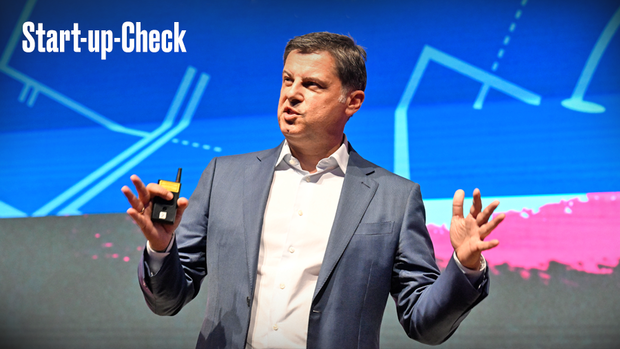At Seifert’s start-up Dyn Media, a new sports broadcaster, there isn’t quite as much money involved. However, the amounts are considerable for a young company: According to the founder, he is investing more than 100 million euros just for the broadcasting rights of the Bundesliga in handball and basketball over the next six years.
After almost a year and a half of preparation, Dyn is scheduled to go on the air on August 23 with the handball Supercup. In doing so, Seifert’s streaming service can fall back on well-known commentary teams, for example with the former national handball players Stefan Kretzschmar and Pascal Hens.
Dyn is all about sport with one exception: football. “A certain monoculture has developed in Germany,” says Seifert. Football dominates reporting and thus public perception. The eloquent man should know, after all, that’s exactly what he’s promoted at the top of the DFL for years. Now the media manager says: “It’s not natural.”
Seifert has therefore secured the broadcasting rights for five second-tier sports: basketball, handball, hockey, table tennis and volleyball. Now he wants to prove that these leagues can also attract masses of fans to the streams.
How does the business model work?
Dyn Media lives on subscriptions. The advance sale has been running for a few weeks. How many customers does Dyn need to break even? Seifert is silent on this. Industry observers believe it will be several hundred thousand because of the significant costs involved.
The company currently has 48 permanent employees, plus 100 freelancers. That’s a lot for a start-up. In order to pay for all of this, Seifert brought the media house Axel Springer on board. The Berliners hold the majority of Dyn. A monthly subscription that can be canceled in advance currently costs 10.50 euros, in the future it will be 14.50 euros.
Who is behind this?
As CEO of Dyn Media, Seifert engaged Andreas Heyden, a football companion. The 49-year-old most recently managed the digital subsidiary of the Bundesliga, DFL Digital Sports. “We want to give the fans a warm, cozy feeling,” Heyden explains his concept. It’s about creating a media home for all those who don’t just want to watch football. Founder Seifert puts their number at 17 million in this country.
Game scene: The new sports channel Dyn Media broadcasts the Bundesliga games for women and men.
(Photo: dpa)
What are Dyn Media’s chances?
Money is no longer as easy for people in Germany as it was during the lockdown days. According to the Bitkom digital association, people spend an average of EUR 15.70 a month on video streaming. A year ago it was 17.90 euros.
Earning money with sports streaming is basically “extremely challenging”, judges Sascha Schmidt, Professor of Sports and Management at WHU – Otto Beisheim School of Management. With monthly cancellation options, subscribers tended to leave the platform when the live rights change or the season ends. “In order to be successful with the streaming of sports content, it is necessary to offer additional attractive content between the live games for subscribers and at the same time also make it freely available in order to increase reach,” says Schmidt.
The three leaders at the new sports channel (from left): Marcel Wontorra is COO, Christian Seifert is founder and shareholder, Andreas Heyden is CEO.
(Photo: Dyne)
Nevertheless, Schmidt sees the “best” conditions for Dyn: “With unconventional, new magazine and highlight formats with experts and celebrities, subscribers should be kept on the platform, especially during the week, and be bound in the long term.” It is also commendable that Dyn is pursuing a holistic approach that not only aims to distribute sports content, but also to achieve sustainable further development of the partner leagues.
Dyn cooperates with both public broadcasters and publishers. For example, the start-up makes videos of the local clubs available to newspapers – at no significant cost to the media companies, as Seifert assures. The clubs also receive Dyn’s content free of charge so that they can distribute it themselves.
Whether the approach actually pays off economically, however, is an open question “as with all innovations,” says Schmidt.
What’s next?
After the Handball Supercup, the leagues start the new season step by step. Autumn will show how attractive Dyn really is for sports fans. In any case, with Springer, Seifert has a financially strong partner that can bear losses over a longer period of time.
More: One Football fan app in crisis – founder resigns
